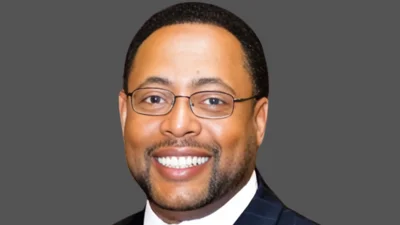Gov. Tony Evers | Gov. Tony Evers Official U.S. House headshot
Gov. Tony Evers | Gov. Tony Evers Official U.S. House headshot
MADISON — Gov. Tony Evers today signed Senate Bill 894, now 2023 Wisconsin Act 96, which provides necessary funding to leverage federal funding for the development of Wisconsin’s biohealth and technology sectors.
“Wisconsin is a leader in the field of personalized medicine and biohealth technology, with a multi-billion dollar industry that supports 129,000 jobs across the state,” said Gov. Evers. “Last year, I was proud to announce Wisconsin was officially designated as a Regional Technology Hub—a feat that wouldn’t have been possible without Sen. Tammy Baldwin. Wisconsin’s designation as a Regional Technology Hub was just the first step, and signing this bill today signals that we are committed to fighting for critical federal funding and supporting this important industry.”
“Today’s bill signing by Governor Evers affirms our state’s commitment to the groundbreaking work that’s being done by our Wisconsin Biohealth Tech Consortium partners,” said Wisconsin Economic Development Corporation (WEDC) Secretary and CEO Missy Hughes. “WEDC is proud to be part of the Consortium and to support our biohealth industry.”
In October, Wisconsin was designated as a Regional Technology Hub (RTH) by the U.S. Economic Development Administration (EDA), which cleared the way for Wisconsin to compete for up to $75 million in funding under the federal CHIPS and Science Act of 2022. The EDA also announced it was awarding Wisconsin a $350,000 strategic development grant as part of the designation.
Last year, 15 public and private partners in the field of biohealth technology and personalized medicine formed the Wisconsin Biohealth Tech Hub Consortium to increase collaboration and to seek the RTH designation. The Wisconsin Biohealth Tech Hub Consortium has designated BioForward Inc. as the lead consortium member for the program, and under the bill Gov. Evers signed today, WEDC would award a grant to BioForward Inc. in its capacity as the lead consortium member, to match a federal regional technology and innovation hub grant. State matching grants are required to compete for awards under the federal program.
Consortium members include WEDC, the University of Wisconsin (UW) System Administration, UW-Madison, GE HealthCare, Rockwell Automation, Exact Sciences Corporation, BioForward Wisconsin, Employ Milwaukee, Accuray, Plexus, WRTP Big Step, Milwaukee Area Technical College, Madison Area Technical College, the Madison Regional Economic Partnership (MadREP), and Milwaukee7.
The consortium brings together educational institutions, biohealth companies, precision manufacturers, investors, and other key players, primarily in Dane, Waukesha, and Milwaukee counties, with the potential to expand opportunities throughout Wisconsin.
In its application for the RTH designation, the consortium noted that the recognition and support from EDA would enable stakeholders to scale up operations to a global level by providing shared data and systems to drive innovation; aligning and scaling the supply chain and manufacturing sector; improving access to capital to start and grow businesses; increasing lab space and expanding opportunities for worker housing and transportation; and ensuring that people across Wisconsin, including rural and traditionally underserved communities, can share in the benefits of this new sector.
As Wisconsin’s biohealth sector grows, it will contribute to a “good jobs” economy by allowing employers to develop, hire, and retain a skilled, diverse workforce in jobs with benefits and upward mobility. By increasing their collaboration, consortium members will be able to better forecast demand for jobs, careers, targeted credentials, and skills; allow businesses to implement skill-based hiring and career advancement; and develop an employer-driven regional workforce strategy to grow and train Wisconsin’s biohealth workforce according to current and future projected needs.
Much of the consortium’s efforts will be focused on personalized medicine, which combines genomic innovation, advanced imaging technologies, big data analytics, artificial intelligence computing, population health trends, and bioscience breakthroughs, with treatments carefully calibrated to a patient’s specific medical needs. It has the potential to transform medical care so patients can heal faster with less need for long-term chronic care, experience fewer side effects, and access healthcare more easily and equitably. On a broader scale, personalized medicine may be able to reduce healthcare costs by emphasizing preventive and proactive care, cutting diagnostic errors, and limiting both the health and economic impacts of rare diseases.
Senate Bill 894, now 2023 Wisconsin Act 96:
• Provides $7.5 million GPR for a grant to BioForward Inc. to provide a match to a federal grant that designates it as the lead consortium member for purposes of a receiving a federal regional technology and innovation hub grant; and
• Requires the WEDC and BioForward Inc. to make annual reports to the Joint Committee on Finance for a three-year period detailing the uses of the grant moneys.
An online version of this release is available here.
Original source can be found here.






 Alerts Sign-up
Alerts Sign-up